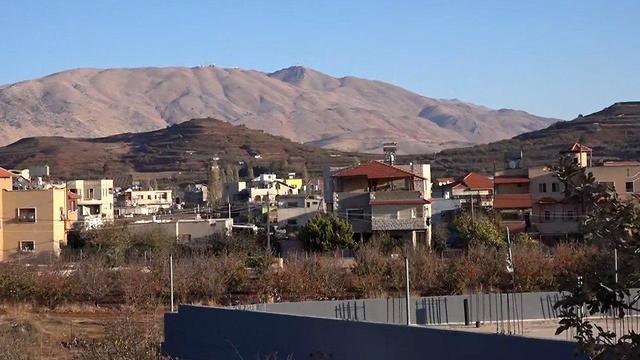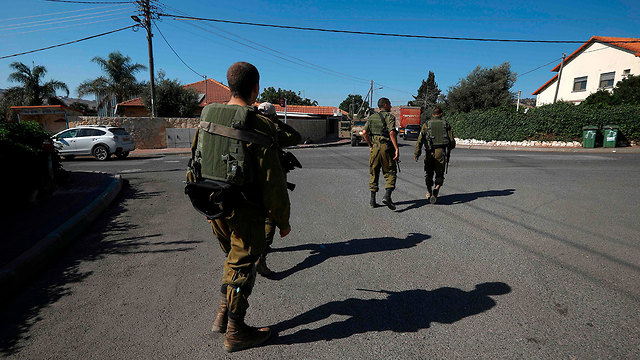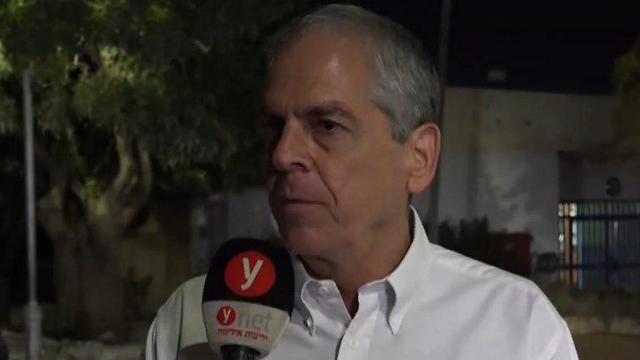When air raid sirens went off on Tuesday morning in Israel's northern communities of Dan, Daphna, Majdal Shams and more, the local residents' daily routine remained almost unchanged.
3 View gallery


Israeli community on the Golan Heights following rocket fire from Syria, Nov. 2019
(Photo: Aviahu Shapira)
Within hours of the early morning strike, the students were going to school, the farmers were working in their fields, and yet, community leaders are worried about their peoples' lack of protection in face of a cross-border attack.
Galit Gutt is a veteran farmer, who isn't too concerned about the fact that she's working in the fields adjacent to the northern border.
"I actually didn't wake up from the siren," she says. "The response time in my area is zero seconds, that means that from the second you hear the alarm you need to lay down on the floor, there's no real time to find any real protection."
3 View gallery


IDF troops at Moshav Avivim on the northern border during an escalation in Sept. 2019
(Photo: AFP)
She says that due to lack of protected spaces in the area, she and her kids stayed at home during the alarm.
"It's all part of the routine, the sun is still amazing, and the kids went to school as usual."
And while some of the residents are sanguine about the current situation, the local leaders are less than pleased.
Giora Zeltz, the head of the Upper Galilee Regional Council, is responsible for 29 communities, 14 of which are located no more than 4km from the border.
"We're no more than pawns on Russia and Iran's chess board," says Zeltz. "We have 11 schools and 120 kindergartens and none of them are reinforced. Furthermore, only one third of the 8,000 houses in the council have bomb shelters."
Haim Rokach, the head of the Golan Regional Council, is also worried about the safety situation.
"Forty percent of our people have no shelter, I hope we'll finally have a government that will approve the necessary budgets," he says.
The sirens were also heard in the Druze town of Majdal Shams, whose residents also seem be quite indifferent to the security situation.
"I heard a siren and a few booms," says local resident Fahtan Mahmud.
"My daughter was scared and leapt out of bed, but we went straight back to sleep," she says. "We had no other choice as we don't have a shelter."
And if the lack of any physical protection is not enough, Israelis in the north have no one to turn to for emotional support, especially after the closure of the region's Hosen (resilience) centers, aimed at helping children deal with traumatic events such as rocket fire.
Despite warnings from IDF Chief of Staff Aviv Kochavi about the dangers in the northern front, there is still no budget to reinforce communities in the north.
Furthermore, the funds to run two Hosen centers - approximately NIS 3 million a year - also seems to be missing from the budget.


